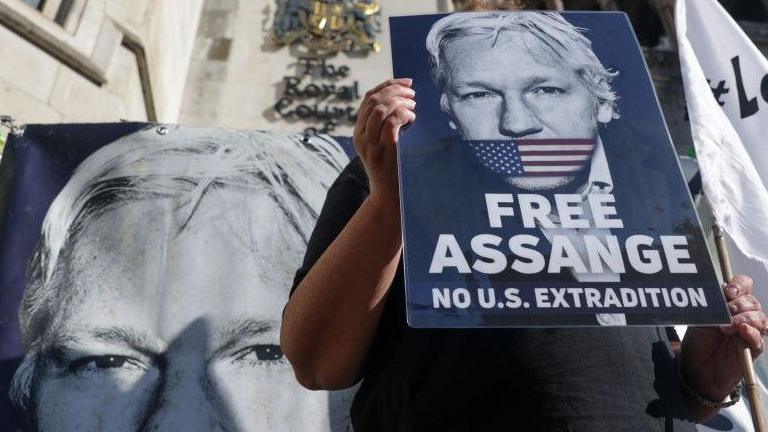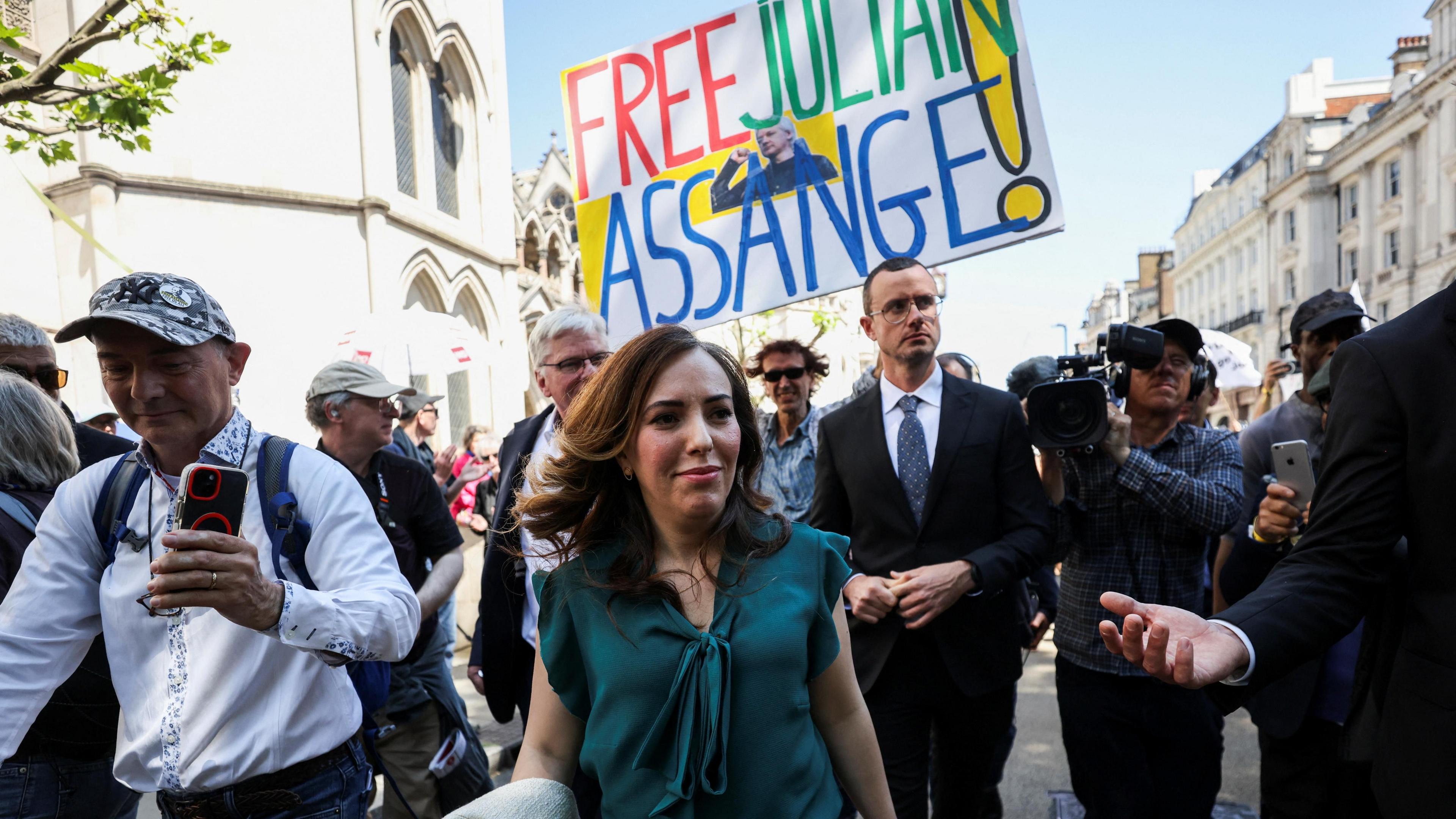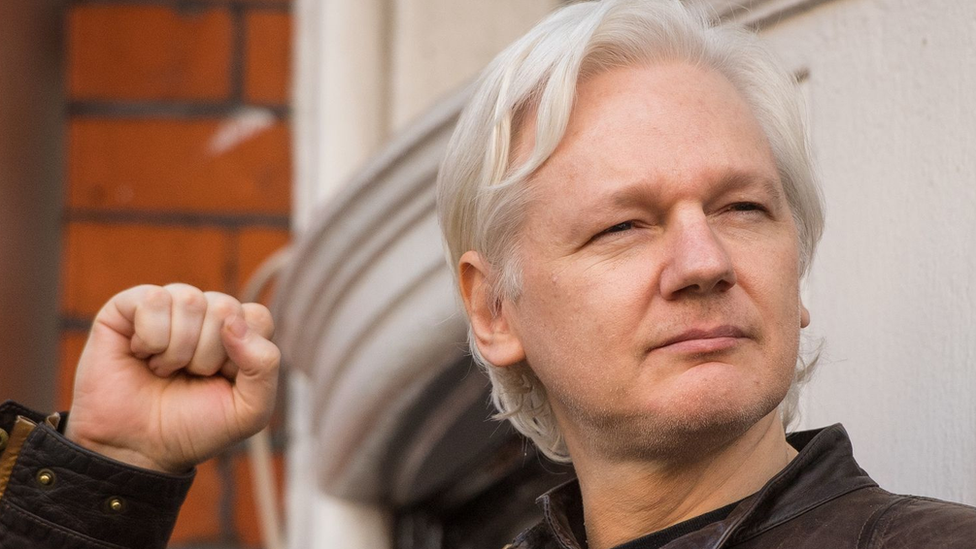Assange wins right to challenge US extradition

- Published
Wikileaks founder Julian Assange can bring a new appeal against extradition to the US, the High Court has ruled.
He was granted permission to appeal against the order that he be sent to the US to stand trial for leaking military secrets.
The decision means Mr Assange will be able to challenge US assurances over how his prospective trial would be conducted and whether his right to free speech would be infringed.
The 52-year-old’s lawyers hugged each other in court after the latest ruling in the legal saga.
They have argued that the case against him - relating to the release of highly classified documents almost 15 years ago about alleged US war crimes - is politically motivated.
The US argues that the Wikileaks files - which disclosed information about the Iraq and Afghanistan wars - endangered lives.
In a short ruling on Monday morning, two senior judges granted him permission to appeal against an earlier order allowing his extradition to the US. They ruled that he needs to be given a full appeal in the UK.
Mr Assange has resisted extradition from the UK for more than a decade, after his Wikileaks website published the confidential US documents in 2010 and 2011.
Mr Assange, who is currently in Belmarsh Prison, will now have a number of months to prepare his appeal, which will concern whether or not the US courts will protect his right to free speech as an Australian citizen.
Hundreds of people had gathered outside the court ahead of the ruling, and supporters of Mr Assange cheered as news of the decision filtered through.
It means he will remain in the UK for now.
Had the court ruled in the US's favour, Mr Assange would have exhausted all legal avenues in the UK.
Earlier on Monday, his wife Stella Assange told the BBC that she would "fight on until Julian is free", whatever the judges ruled.
'Turning point'
Speaking outside the Royal Courts of Justice after the decision, Ms Assange welcomed the ruling and branded it a “turning point”.
She called on the US to “abandon this shameful attack on journalists, on the press and the public that has been going on for 14 years.”
The US Department of Justice described the leak as "one of the largest compromises of classified information in the history of the United States".
The leaked files suggested the US military had killed civilians in unreported incidents during the war in Afghanistan.
US authorities say Mr Assange put lives at risk by failing to redact the names of intelligence operatives in the documents. They also argue that he is not being prosecuted in relation to any of the disclosures that he says exposes war crimes.
Mr Assange's legal team has argued that the case is a politically motivated form of "state retaliation".
"He exposed literally war crimes," Ms Assange told BBC Radio 4's Today programme on Monday.
"This case is the revenge of that country against openness and accountability."

Stella Assange, wife of the WikiLeaks founder Julian Assange, outside of the High Court after the ruling
Then-home secretary Priti Patel signed Mr Assange's extradition order in 2022, but he returned to the High Court in February 2024 to ask for permission to appeal, external.
At a hearing in March, the US government was given additional time to make assurances that Mr Assange would not receive the death penalty in the US and on two other grounds:
that Mr Assange would be able to rely on the first amendment to the US constitution - which protects free speech
that his Australian nationality would not count against him
Last month, judges confirmed the US had provided assurances to the court.
Mr Assange and his legal team accept the assurance that he will not face the death penalty were he to be charged with other offences.
Earlier on Monday, James Lewis KC, representing the US government, said in written submissions to the court that there was “no question” that Mr Assange would be “entitled to the full panoply of due process trial rights” - including the first amendment defence – if extradited.
Separately, last month, US President Joe Biden said he was considering a request from Australia to drop Mr Assange's prosecution and return him to his native country.
Related topics
- Published11 April 2024

- Published26 June 2024

- Published26 March 2024
